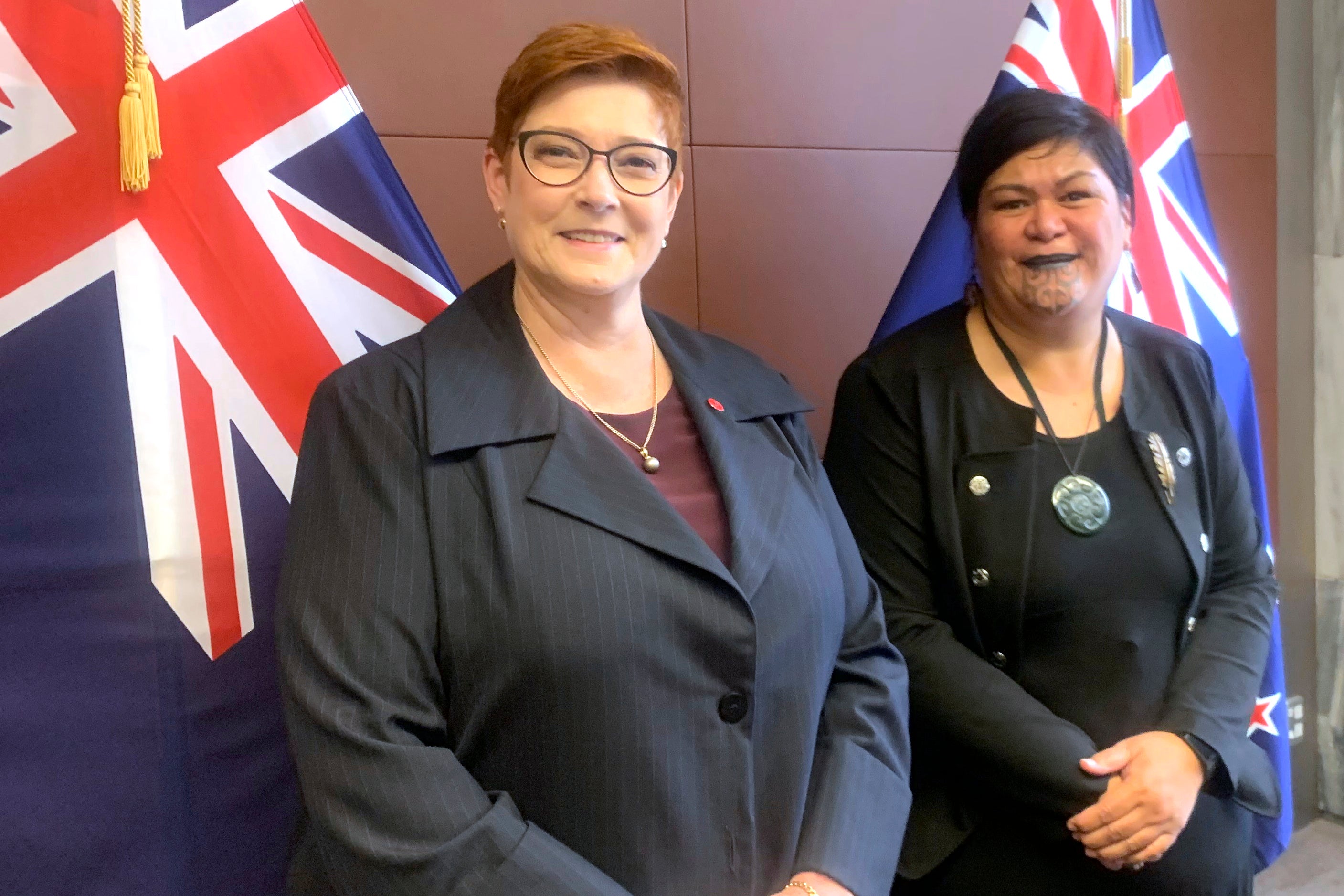New Zealand says Five Eyes security alliance remains strong
New Zealand says it continues to have a close and productive relationship with the U.S. and other security allies, despite resisting speaking out in unison with them against China on certain human rights issues

Your support helps us to tell the story
From reproductive rights to climate change to Big Tech, The Independent is on the ground when the story is developing. Whether it's investigating the financials of Elon Musk's pro-Trump PAC or producing our latest documentary, 'The A Word', which shines a light on the American women fighting for reproductive rights, we know how important it is to parse out the facts from the messaging.
At such a critical moment in US history, we need reporters on the ground. Your donation allows us to keep sending journalists to speak to both sides of the story.
The Independent is trusted by Americans across the entire political spectrum. And unlike many other quality news outlets, we choose not to lock Americans out of our reporting and analysis with paywalls. We believe quality journalism should be available to everyone, paid for by those who can afford it.
Your support makes all the difference.New Zealand said Thursday it continues to have a close and productive relationship with the U.S. and other security allies, despite resisting speaking out in unison with them against China on certain human rights issues.
New Zealand Foreign Minister Nanaia Mahuta discussed her reluctance to expand the role of the Five Eyes intelligence-sharing alliance to include stances on human rights. The alliance among New Zealand, the U.S., the U.K, Australia and Canada dates to World War II.
Some observers have speculated that the differing approaches have exposed cracks in the alliance and that New Zealand is not being tough enough with China.
Last year, for instance, New Zealand declined to sign a joint declaration by the other Five Eyes members condemning China’s national security legislation in Hong Kong. New Zealand did, however, separately express its concerns.
Mahuta's comments Thursday came after she met with her Australian counterpart Marise Payne at the first high-level summit since the two countries opened a quarantine-free travel bubble this week. The meeting came ahead of a planned visit by Australian Prime Minister Scott Morrison next month.
Mahuta said New Zealand values the Five Eyes relationship and receives significant benefits from it. But she said Five Eyes was about security and intelligence.
“And it’s not necessary all the time on every issue to invoke Five Eyes as your first port-of-call in terms of creating a coalition of support around particular issues, in the human rights space, for example,” Mahuta said.
Payne said that as liberal democracies, the Five Eyes partners shared many common values and approaches to international issues through an era of greater strategic competition in the region.
She said countries would choose to address issues of concern in whichever forum they found appropriate, but that the respect among the Five Eyes partners remained “enduring and continuing."
Payne said Australia continued to pursue cooperation with China when it was in Australia's interests.
“But we also have to acknowledge that China’s outlook, and the nature of China’s external engagement, both in our region and the world, has changed in recent years.”